Soundproofing for Office Soundproofing
Introduction
In today’s fast-paced and noisy world, having a peaceful and quiet environment in the office is crucial for productivity and well-being. Office soundproofing plays a significant role in creating a calm and focused workspace, reducing distractions, and improving overall employee satisfaction. In this article, we will explore the importance of soundproofing in offices and provide practical tips on how to achieve effective soundproofing solutions.
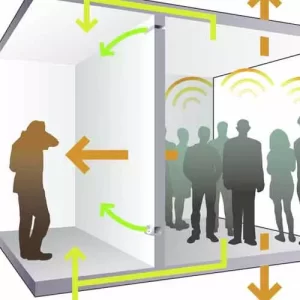
1. Understanding the Importance of Office Soundproofing
Office soundproofing is essential for maintaining a productive and stress-free work environment. Excessive noise levels can lead to decreased concentration, increased stress levels, and reduced productivity among employees. Soundproofing helps to minimize external noises, such as traffic sounds or construction work, as well as internal noises, including conversations and office equipment.
2. Identifying Common Sources of Noise in the Office
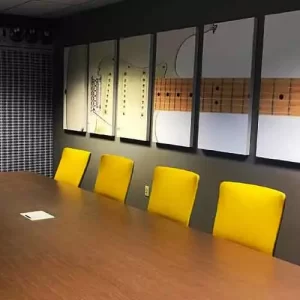
Before implementing soundproofing solutions, it is crucial to identify the primary sources of noise in the office. Common sources include HVAC systems, telephones, printers, conversations, footsteps, and background music. Understanding these sources will guide the selection of appropriate soundproofing measures.
3. Assessing the Impact of Noise on Workplace Productivity
Research has shown that excessive noise can have a significant impact on workplace productivity. Distractions caused by noise can lead to errors, reduced focus, and increased stress levels among employees. By investing in soundproofing solutions, companies can create a more conducive environment for efficient work and improved employee satisfaction.
4. Choosing the Right Soundproofing Materials
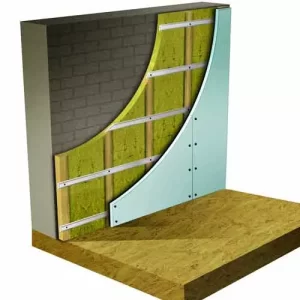
When it comes to soundproofing, selecting the right materials is crucial. Acoustic panels, foam insulation, resilient channels, and soundproof curtains are popular options for reducing noise transmission. It is important to consider the specific needs of the office space and consult with experts to determine the most suitable materials.
5. Implementing Soundproofing Solutions for Office Spaces
To effectively soundproof an office, a combination of techniques and materials may be necessary. Soundproofing can be achieved through wall treatments, ceiling installations, door and window enhancements, and the use of sound-absorbing furniture. A comprehensive approach will yield the best results in creating a quiet and comfortable workspace.
6. Soundproofing Techniques for Doors and Windows
Doors and windows are common areas where noise can easily penetrate. Soundproofing techniques for doors may involve using weatherstripping, door sweeps, and door gaskets to minimize sound transmission. Similarly, installing double-pane windows or adding window inserts can significantly reduce noise infiltration.
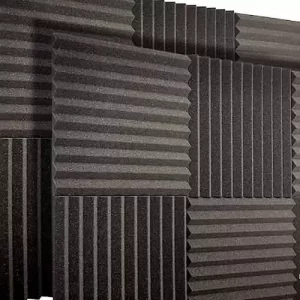

7. Creating Soundproof Workstations and Private Areas
Open office layouts have become popular, but they can also contribute to noise-related challenges. Creating soundproof workstations and private areas can offer employees quiet spaces for focused work and confidential conversations. Using soundproof partitions, modular walls, or phone booths can effectively isolate noise and create a more productive environment.


8. Acoustic Ceiling Treatments for Noise Reduction
Ceilings are often overlooked when considering soundproofing solutions. However, acoustic ceiling treatments can absorb and reduce noise, improving overall sound quality in the office. Options include acoustic tiles, suspended baffles, and soundproofing sprays, which help to control echoes and minimize sound reverberation.


9. Soundproofing Walls and Dividers
Walls and dividers play a crucial role in blocking sound transmission. Using soundproof insulation, resilient channels, or soundproof drywall can effectively reduce noise transfer between rooms and workspaces. Additionally, strategic placement of bookshelves, plants, or artwork can help absorb sound waves and enhance the soundproofing effect.


10. Office Furniture and Layout Considerations
Office furniture and layout choices can impact soundproofing efforts. Opting for sound-absorbing materials in furniture upholstery and selecting ergonomic designs can help reduce noise levels. Moreover, arranging workstations strategically to create barriers and buffer zones can minimize sound distractions and enhance privacy.


11. Maintaining and Upgrading Soundproofing Systems
Regular maintenance is crucial to ensure the longevity and effectiveness of soundproofing systems. Inspecting and repairing any damaged or worn-out materials, such as seals, panels, or acoustic insulation, will help maintain optimal soundproofing performance. Periodically assessing the office environment and upgrading soundproofing solutions when needed will ensure continued noise reduction.


12. The Role of Technology in Office Soundproofing
Advancements in technology have brought innovative solutions for office soundproofing. White noise machines, sound masking systems, and smart acoustic panels can actively reduce distracting noises and enhance speech privacy. Integrating these technologies into the office environment can significantly contribute to a quieter and more focused workspace.


13. Soundproofing in Open Office Environments
Open office environments, while promoting collaboration and flexibility, can present challenges in terms of noise management. Employing a combination of sound-absorbing materials, acoustic partitions, and quiet zones can help strike a balance between open communication and noise reduction. Effective communication and employee awareness are also essential in maintaining a harmonious working environment.


14. Employee Awareness and Communication
Educating employees about the importance of soundproofing and its benefits is essential for fostering a culture of respect for noise reduction. Encouraging individuals to use headphones, setting guidelines for conversations, and establishing quiet areas can create a shared responsibility for maintaining a peaceful office environment.


Conclusion – Soundproofing for Office Soundproofing
Soundproofing plays a vital role in creating a productive and stress-free office environment. By understanding the sources of noise and implementing appropriate soundproofing solutions, companies can enhance workplace productivity and employee well-being. Investing in soundproofing materials, technology, and employee awareness will result in a more focused and harmonious workspace.
Frequently Asked Question- Soundproofing for Office Soundproofing
- How much does office soundproofing cost?
Answer: The cost of office soundproofing varies depending on factors such as the size of the space, materials used, and specific soundproofing requirements. It is recommended to consult with professionals to get an accurate estimate based on your office’s needs. - Can soundproofing completely eliminate all noise in the office?
Answer: While soundproofing can significantly reduce noise levels, it cannot completely eliminate all sounds. The goal is to create a quieter and more comfortable environment that minimizes distractions and improves focus. - How long does it take to install soundproofing in an office?
Answer: The duration of soundproofing installation depends on the scope of the project. Simple installations, such as adding acoustic panels, may take a few hours, while larger projects involving multiple areas may take several days or weeks. - Can soundproofing also improve energy efficiency in the office?
Answer: Yes, certain soundproofing materials, such as insulation, can also provide thermal insulation and improve energy efficiency in the office. This dual benefit can result in cost savings and a more sustainable workplace. - Can I install soundproofing in a rented office space?
Answer: Yes, it is possible to install soundproofing in a rented office space. Temporary solutions, such as soundproof partitions or acoustic panels, can be utilized without causing permanent damage to the property. It is advisable to consult with the landlord or property manager before making any modifications.
Contact Us
Mobile: +919008400701 / 705
Email: sales@jayswalgroup.com
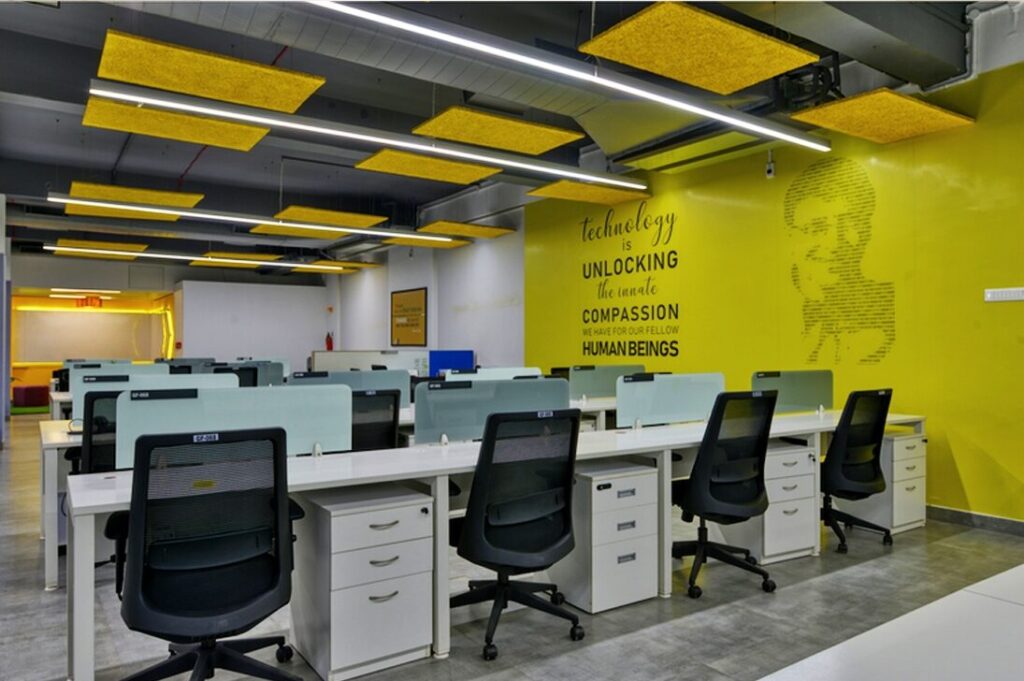
Visit Us
Address:
#6, 10th B Cross, Jayswal Center, KHB Main Road, Kaveri Nagar, Kanakanagar, RT Nagar, Bangalore – 560032, Karnataka, India.
Other Websites: